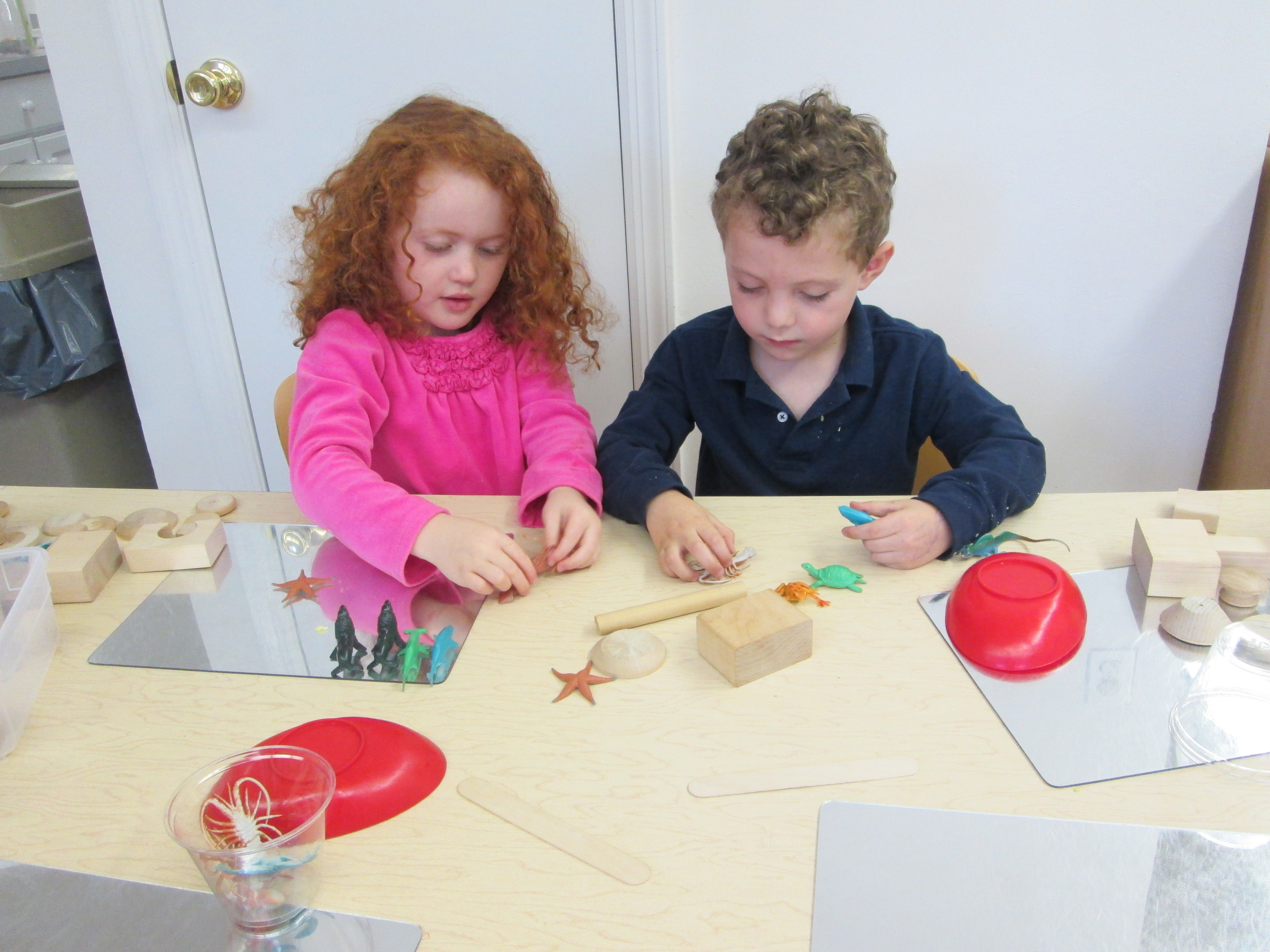Finding a Friend
Here are my opening remarks from our Welcome Back meeting. Off to another great start of another great year!
Each year, I find this night to be filled with equal parts excitement, anticipation and apprehension. What will we find this year? Will we find that caterpillars turn into butterflies? Will we find our way to the top of the Empire State Building? Or will we find some little fuzzy creatures to take care of? One important experience I know our children will find at Greenhouse this year is the thrill of finding a friend.
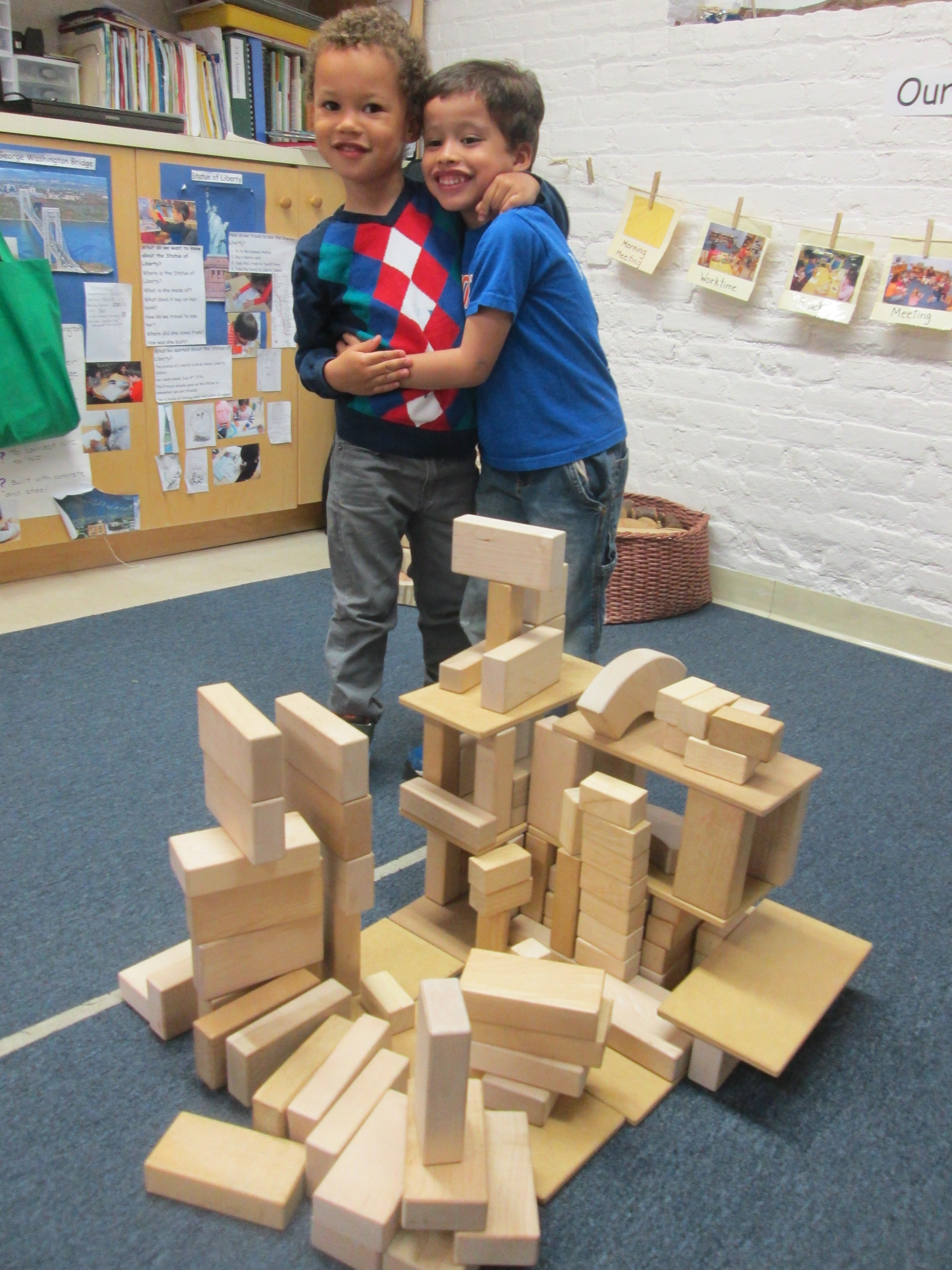 As humans, we are wired to seek connections with one another. So much of our world is experienced through our relationships with others. Our friends provide the impetus for fun, learning and laughter. There is something special about sharing a discovery with another person. But having friends is more than just fun; finding a friend is more than just an added plus. There is growing evidence that friendships are vital for healthy psychological development and adjustment to school. Research tells us that children who successfully make and keep friends and are accepted by the group tend to like school and perform better. When children first begin nursery school as two- or even three-year-olds, they are typically most interested in the new materials and the adults in the room. But as time passes and their world opens up, the children become more interested in one another. And that is when we begin the important work of finding a friend.
As humans, we are wired to seek connections with one another. So much of our world is experienced through our relationships with others. Our friends provide the impetus for fun, learning and laughter. There is something special about sharing a discovery with another person. But having friends is more than just fun; finding a friend is more than just an added plus. There is growing evidence that friendships are vital for healthy psychological development and adjustment to school. Research tells us that children who successfully make and keep friends and are accepted by the group tend to like school and perform better. When children first begin nursery school as two- or even three-year-olds, they are typically most interested in the new materials and the adults in the room. But as time passes and their world opens up, the children become more interested in one another. And that is when we begin the important work of finding a friend.
At Greenhouse, we intentionally design our program to provide children with many opportunities to practice the social skills they need to build and keep friends. When we talk about “skills” in areas like early literacy or mathematics, there is a general understanding of the components of those areas—reading, writing, counting, numbers. Everyone knows what the basic skills of literacy and mathematics look and sound like. But when we talk about social competencies for young children, the general understanding of its content might be less understood.
Much of our work relating to social skills begins with building an emotional vocabulary. We start with the ability to recognize and label one’s own emotions. “Are you frustrated that your friend won’t listen to your idea?” or “You seem sad that your friend is playing with someone else right now.” While our children might be small, their emotions are not! It is not unusual for a young child to be taken over by his or her emotions and lose the use of his words. In this beginning stage of understanding one’s own emotional self, our work is to help children identify what they are feeling and then find the words that describe it. In this practice, we are connecting their emotions with their thoughts. The simple act of labeling an emotion with words helps to shift the emotion to the language/cognitive center in the brain. This helps a child process the feeling in a manner that is more cognitive and less reactive and emotional. This is the beginning of self-regulation and it is fundamental to social competency. Being able to use language to express their feelings helps them gain control over and regulate those big emotions.
Developing self-regulation is a process – one that takes time, practice and patience. Ultimately, we want the children to know that someday soon, they will be able to express their emotions (even the big ones) and get what they want and need in a socially acceptable way. This ‘growth mindset’ acknowledges the daily process of social learning that is happening in the context of their interactions with their peers. Simply saying to a child, “Someday soon you will be able to use your words to tell your friend how you feel” plants the seeds of growth and development in the minds of our children and reinforces that with continued development, hard work and practice we know that this skill will come.
And what better way to provide opportunity for continued practice than through play! Child-directed play provides the perfect context for children to practice expressing their feelings and wants, listening to others and then negotiating the give-and-take of relationships. We design our environment purposefully so partners or small groups of children will come together to do just that. 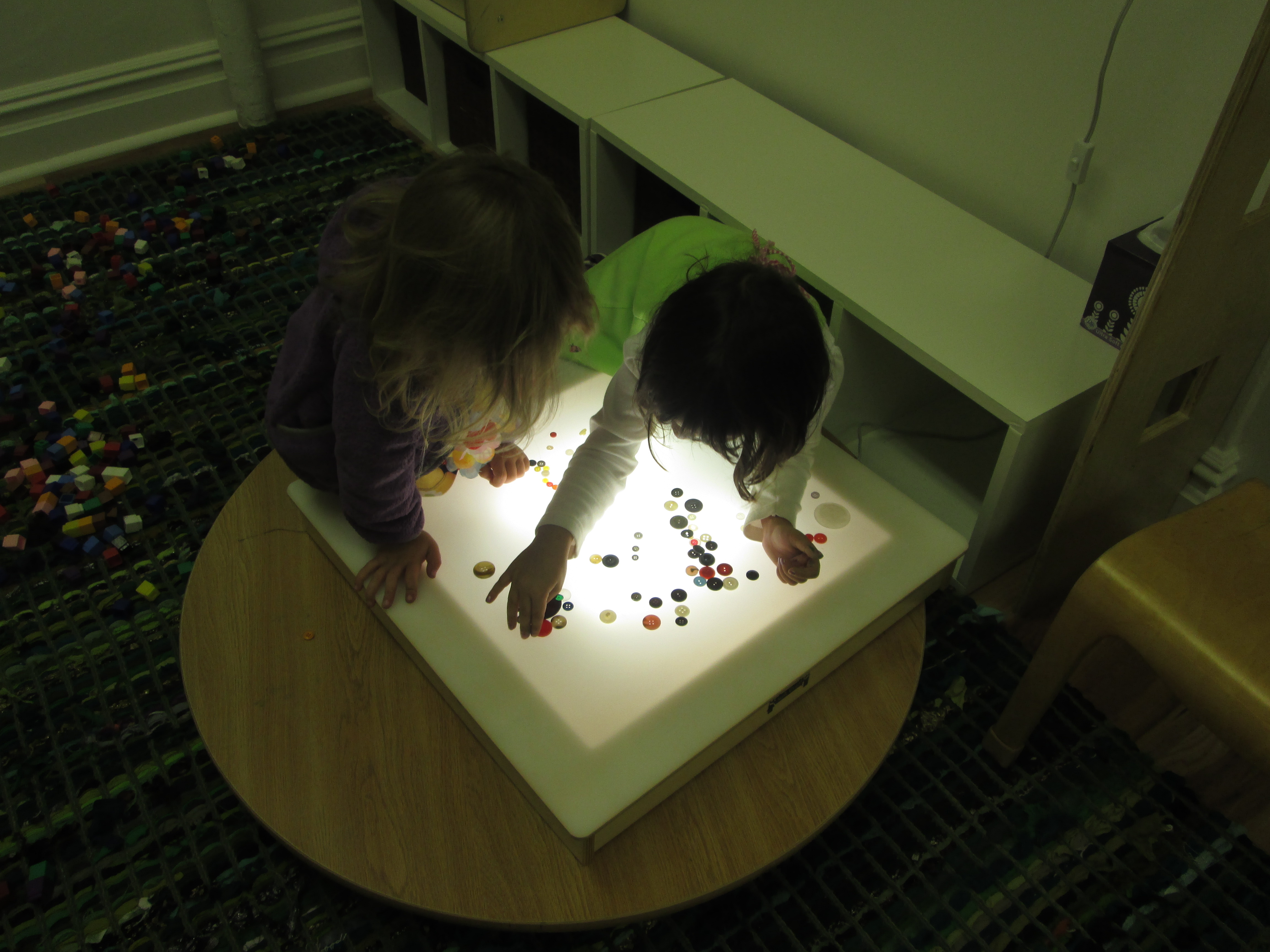 Interesting materials are purposefully chosen and displayed to invite kids to come together to create and inspire. Both our setting and our intentional choice of materials provide the opportunity for a child to practice tuning in and reading the social context of the group. A child has to figure out: what is going on in here today? What can we do with these props and materials? What ideas do they inspire? What scripts can we practice? Throughout, a child has to recognize the perspective of another person. This ability to take the perspective of another person is vital to cooperative play. There is also the opportunity for children to figure out how to find a way to enter into a group. How can I find a relevant way to join your play and then build onto it? Creative ideas become the currency of play. Practicing this social approach skill – knowing how to assess a situation, determine the context and ease oneself seamlessly in – is crucial for the development of socially competent children.
Interesting materials are purposefully chosen and displayed to invite kids to come together to create and inspire. Both our setting and our intentional choice of materials provide the opportunity for a child to practice tuning in and reading the social context of the group. A child has to figure out: what is going on in here today? What can we do with these props and materials? What ideas do they inspire? What scripts can we practice? Throughout, a child has to recognize the perspective of another person. This ability to take the perspective of another person is vital to cooperative play. There is also the opportunity for children to figure out how to find a way to enter into a group. How can I find a relevant way to join your play and then build onto it? Creative ideas become the currency of play. Practicing this social approach skill – knowing how to assess a situation, determine the context and ease oneself seamlessly in – is crucial for the development of socially competent children.
Also, as children eng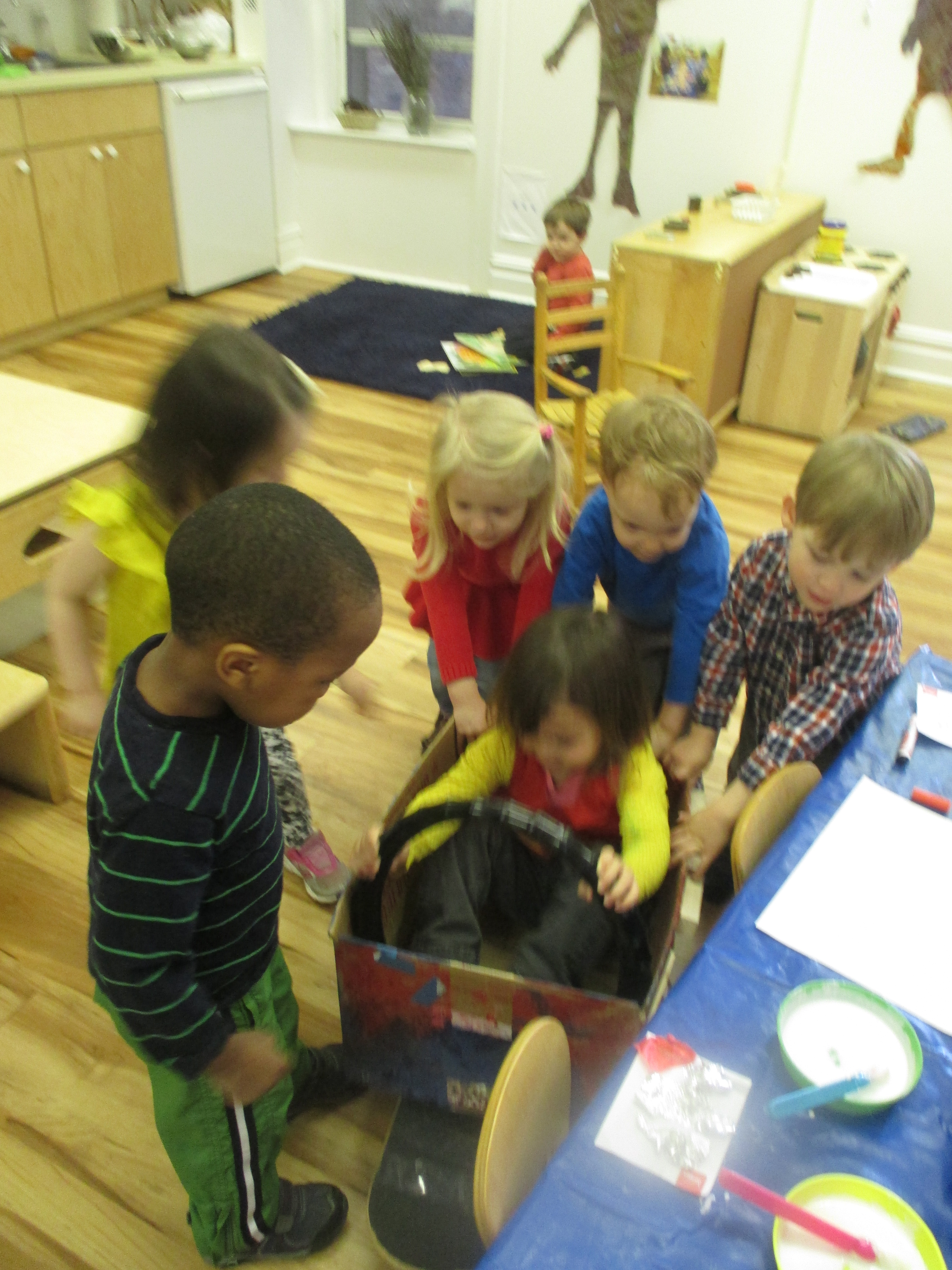 age together in cooperative activities they learn other pro-social behaviors within a natural context including turn taking, managing risks and making decisions. In addition, children build friendships by learning how to share a common goal and work together to see it through. Together, a question or common goal is established; for example, how do we draw a treasure map, build a train or cook our snack? Whatever the goal, it is the materials, the ideas and the work that bring the children together. Then, within that real and meaningful task, the perfect context is provided for them to practice the skills – like communication, focus, negotiation and flexibility – that they will need to build lasting friendships. So, whether they discover they have a shared interest in building tall towers or they simply find a friend with whom they can enjoy some tasty apple slices, what they have actually found is that magic spark that brings two people together seeking human connection.
age together in cooperative activities they learn other pro-social behaviors within a natural context including turn taking, managing risks and making decisions. In addition, children build friendships by learning how to share a common goal and work together to see it through. Together, a question or common goal is established; for example, how do we draw a treasure map, build a train or cook our snack? Whatever the goal, it is the materials, the ideas and the work that bring the children together. Then, within that real and meaningful task, the perfect context is provided for them to practice the skills – like communication, focus, negotiation and flexibility – that they will need to build lasting friendships. So, whether they discover they have a shared interest in building tall towers or they simply find a friend with whom they can enjoy some tasty apple slices, what they have actually found is that magic spark that brings two people together seeking human connection.
Now problems come up – as they do in any relationship. Emotions run high and passions run deep when you are working closely on something you are committed to. We want our children to know that all emotions are okay. (Notice I said emotions – not behavior. It is an important distinction.) This is an important learning opportunity through which we begin the important work of actively solving a very real and personal social problem. We guide them through the process of conflict negotiation. “Looks like we have a problem here. How can we find a solution?” We don’t jump in and provide them the answers; we help them find their own answers. We consider various solutions and perspectives. We point out multiple consequences and we encourage children to think about their own needs and also think in terms of others’ feelings and needs. Our ultimate goal is for our children to build an intrinsic motivation to act with empathy and mindfully of others. Nursery school is just the beginning of this learning. As children grow and develop, so does their ability to take on the perspective of another mind. As children enter their fourth year of life they begin to understand that other people have internal worlds – thoughts, experiences and emotions – that are completely separate from their own. That knowledge is what eventually guides them to find solutions to problems in a friendly and pro-social way.
Finding a friend – finding out who they are in relationship with their peers – will be an ongoing, lifelong process for our children. As in all of learning, we understand and expect that some days the skills will come easily and some days will be more difficult. Also, we understand that each child will approach social learning through their own temperament and style. Some children are eager for peer friendships and they seek them happily. Others are more often onlookers and prefer to watch before jumping in. Some are leaders with ideas to share, and others are happy to go along for the ride and play the supporting role. 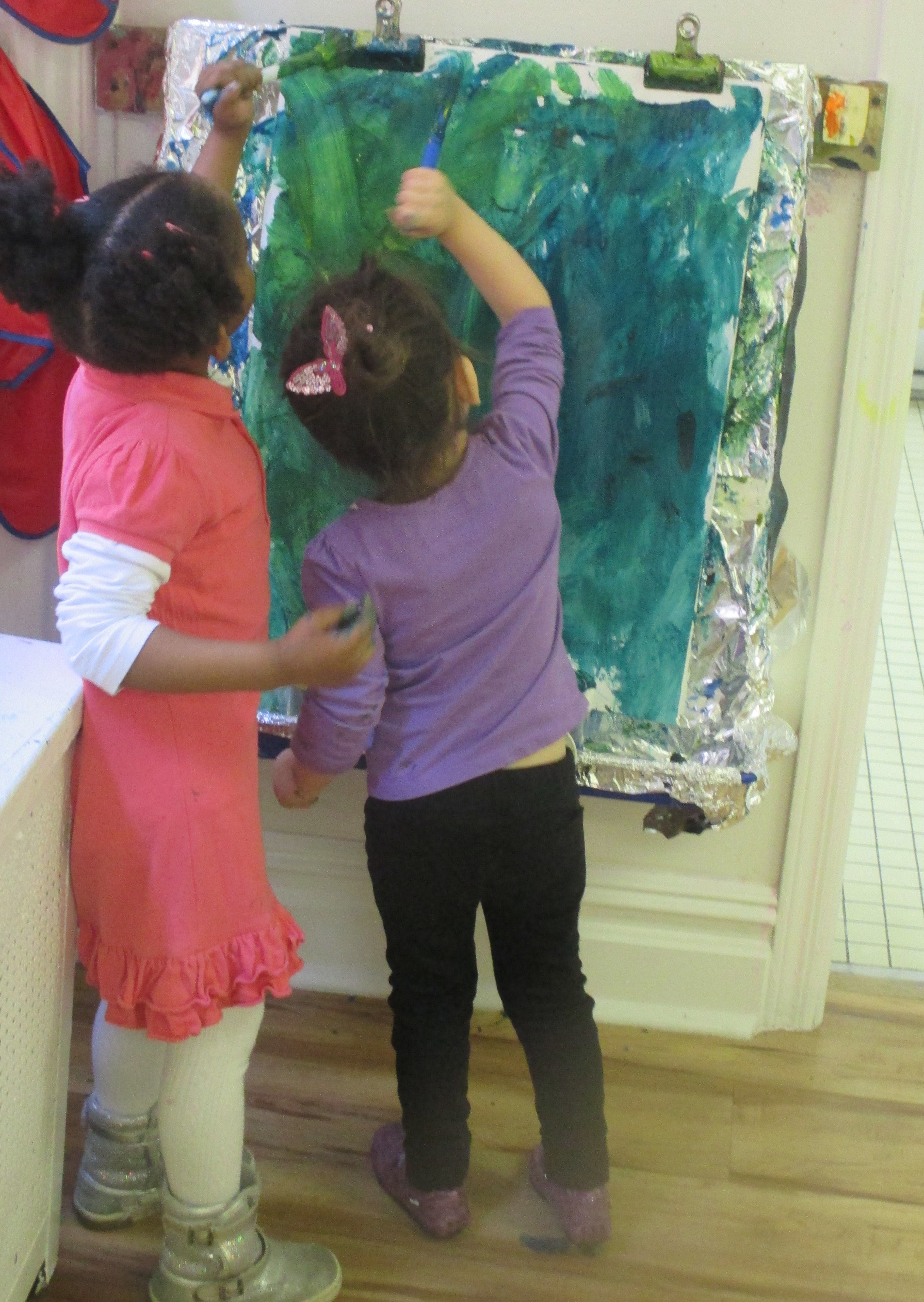 The world requires many different ways of being, and our job is to understand each individual child’s experience and temperament and support them on their journey. Along that journey, our kids will find someone to give them a ride when they need it; someone with whom they can share their secrets; and someone who can lend them a helping hand when they bump up against a problem. Finding a friend is a journey worth taking. And there is another little known secret of nursery school! Not only will your child find a friend here, but you will find a friend here too. You, too, will find a shared interest with another person or determine a common goal that you will work together to reach. You might even find a whole group of friends! We are happy to be on this quest with you and your family. We look forward to the journey of the coming school year, and most importantly, we look forward to all the friends that we will find.
The world requires many different ways of being, and our job is to understand each individual child’s experience and temperament and support them on their journey. Along that journey, our kids will find someone to give them a ride when they need it; someone with whom they can share their secrets; and someone who can lend them a helping hand when they bump up against a problem. Finding a friend is a journey worth taking. And there is another little known secret of nursery school! Not only will your child find a friend here, but you will find a friend here too. You, too, will find a shared interest with another person or determine a common goal that you will work together to reach. You might even find a whole group of friends! We are happy to be on this quest with you and your family. We look forward to the journey of the coming school year, and most importantly, we look forward to all the friends that we will find.
